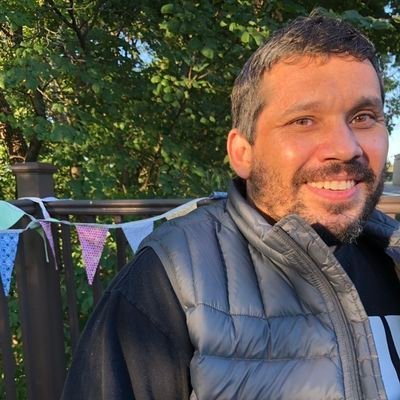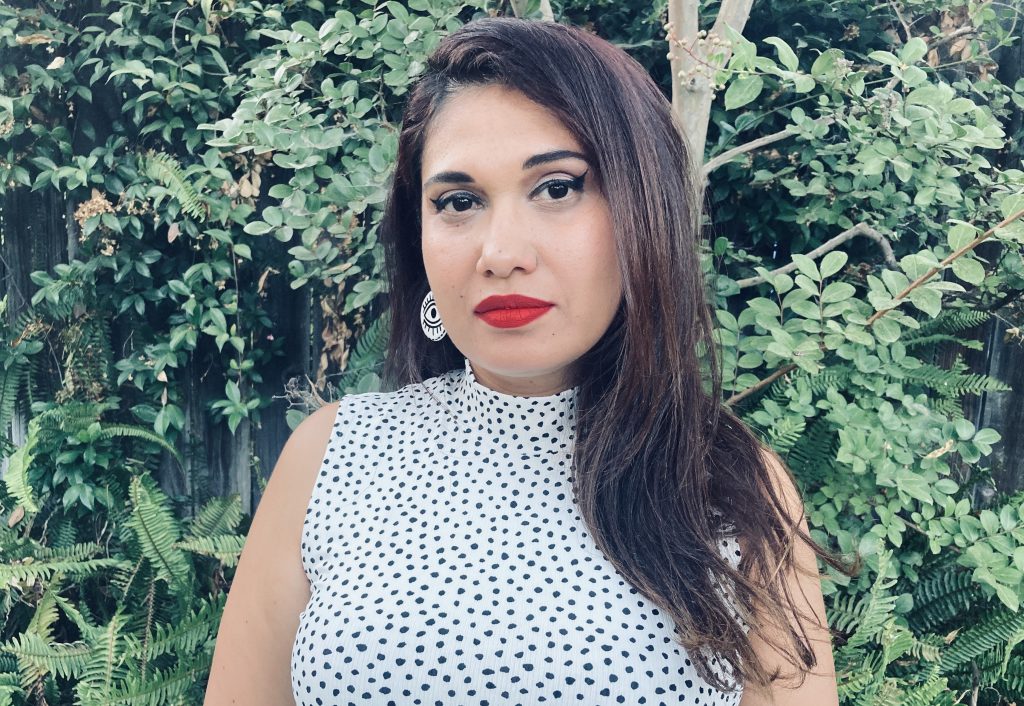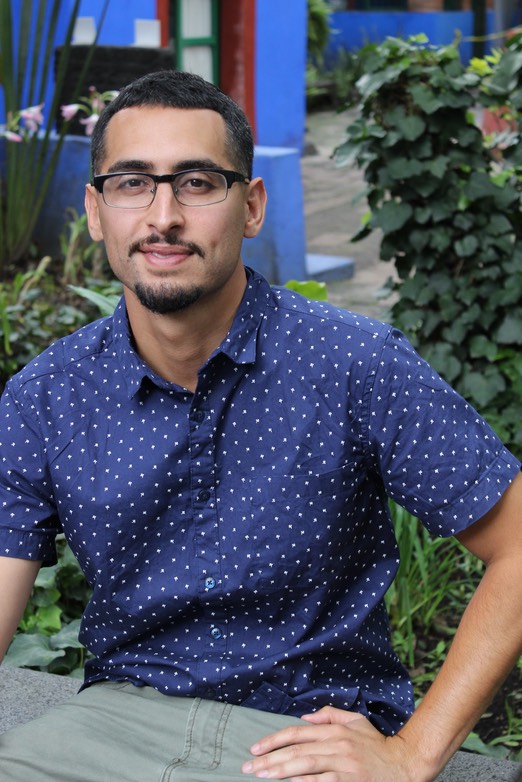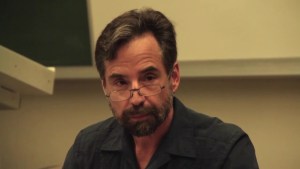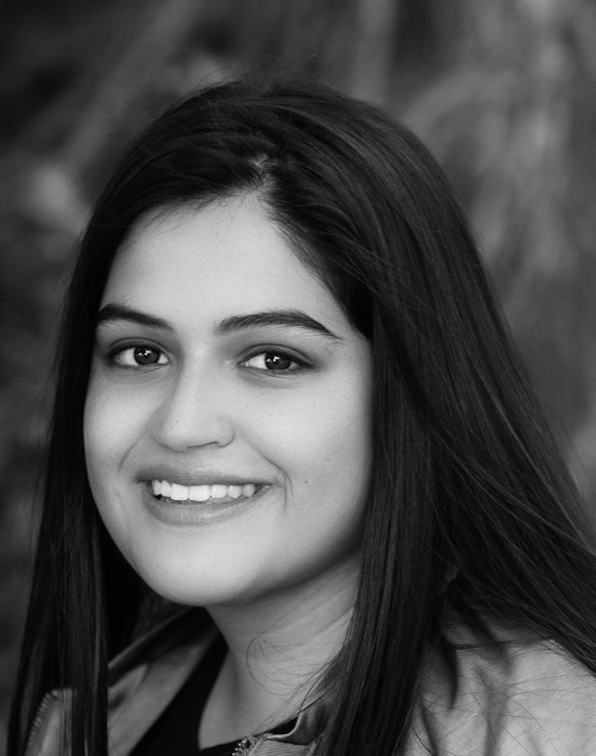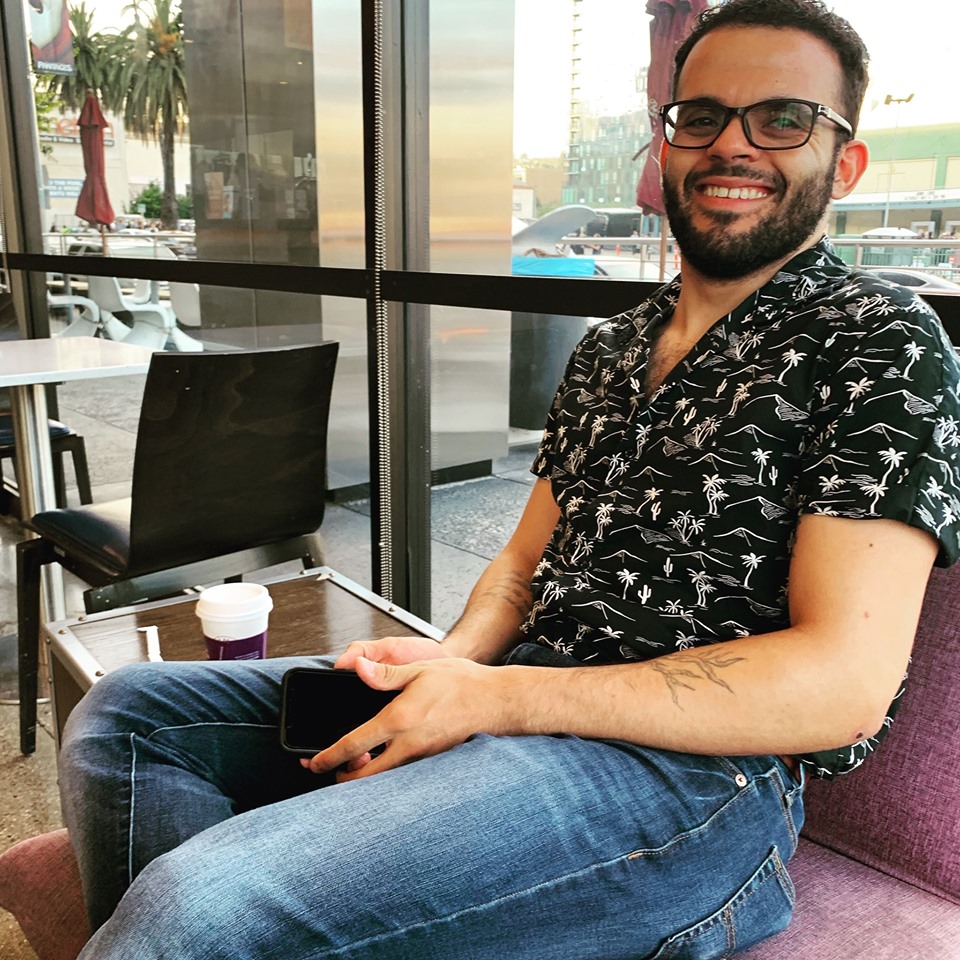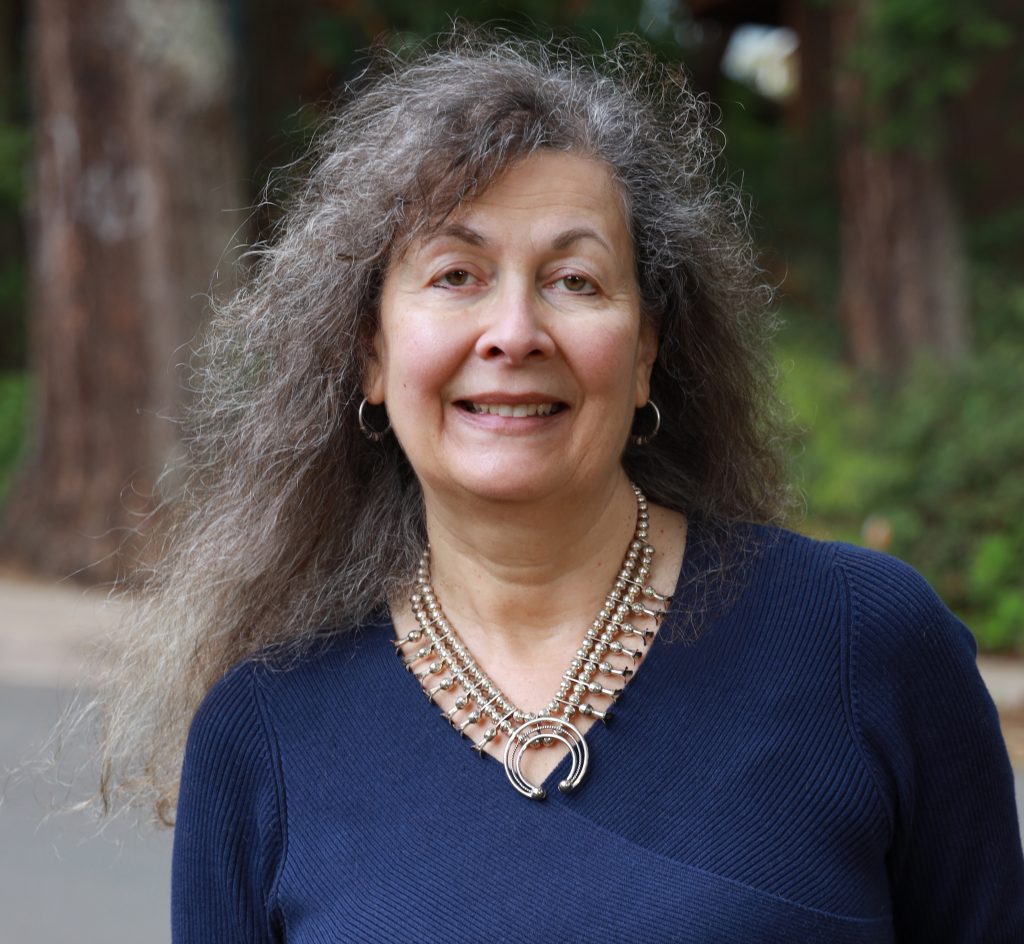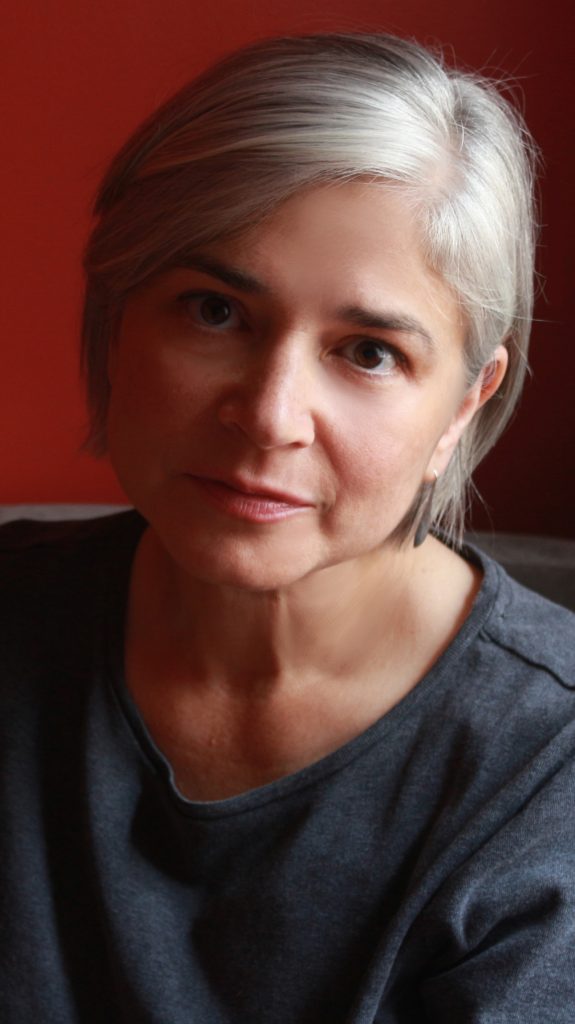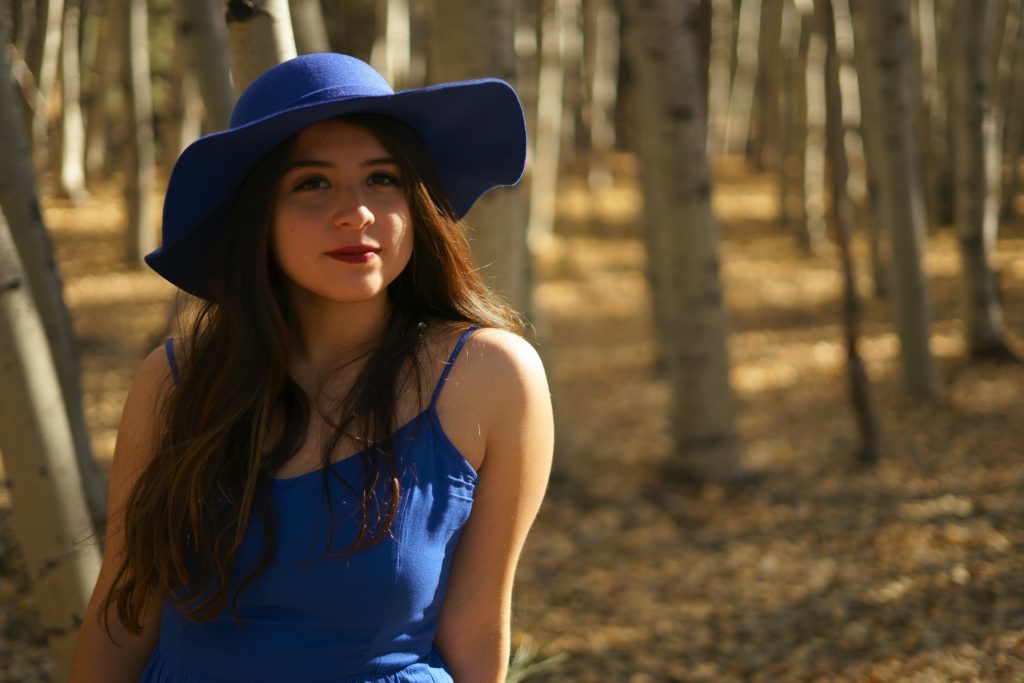By Icess Fernandez Rojas
I was at the end of my fourth-grade year when I learned I was black and what that meant.
And it wasn’t that I didn’t know I was black. That was obvious — dark skin that popped against my white classmates’ skin during dodge ball, kinky hair chemically beat into submission, the questioning stares from teachers during roll call after their weak attempts to say my name correctly.
I knew I was Black. But I didn’t know what that meant. Not really.
My Black comes from Cuba, as sweet as the sugar cane my ancestors harvested. My Black touched the shores of West Africa before touching the sands of the Caribbean. And Papá didn’t say much more about being black other than we were, I am, black and with it, there are things he couldn’t quite explain.
The route home on the hot, sticky bus ride was the same every day of every year so I knew it better than anyone. On that day, when the school bus rounded the corner, passing the white house with the blue trim, I knew the next stop would be mine. By that time, there would only be a handful of us kids still left on the bus. A couple of girls, like a set of bookends, would sit in the front. They looked a grade or two younger than me, their blinding Lisa Frank bookbags still on their backs. A couple of third-grade girls, blonde and well dressed, were sprinkled in the middle, sitting with their backs against the side of the bus wilting against the crosswind. And then toward the back was me, hair like a cotton ball against the Houston humidity. That afternoon was hot and sticky, summer a couple of degrees away. The air from open windows didn’t make the school bus any less of a hot box and green vinyl seats glued themselves to the back of our thighs as our sweat-soaked t-shirts clung to our backs.
The bus stopped right in front of my house. But that didn’t matter. Sitting behind me, loud as day, was the reason I wanted to leap from the moving bus most days.
The group of white boys had spent the bus ride calling me everything but a child of God. My hair, my skin, my clothes, my voice were all up for ridicule. Usually, I ignored it, pretended I couldn’t hear them, and then read my book or disappeared into my inner thoughts. He-Man and She-Ra would be on by the time I ran into my house so I concentrated on that. Mamá y Papá would be there. My baby sister would be too, home early from kindergarten. The house would smell like ropa vieja or picadillo con papa or arroz con frijoles negros and I would be home, speaking my Spanish and being who I was.
“Hey, you. What kind of black are you?” one of them asked. His face was red from the heat. He was from my grade but in another classroom. I recognized him from the hallways and during recess. He was one who liked making fun of the girls. He especially liked the girls who cried in front of him.
Another white boy, who was in my class, had answered when he saw I was ignoring him. “She speaks that Mexican.” His voice like a dart, designed to hurt.
I kept ignoring them as they snickered, mocking me in their fake Spanish. The boy in my grade looked over the seat to make commentaries about my reactions. “She’s about to cry. Are you gonna cry in Mexican?” I made my face cement, his laugh burning on the inside of my ear. I wanted to become She-Ra, Princess of Power, and kick them. Hard. I wanted them to stop making fun of me, but I knew anything I’d say they would be used as timber for their fire.
“But she’s one of those Negros. Look at her hair. She is darker than those Mexicans. I don’t believe you speak Mexican, girl. Talk. Say something.”
As the bus inched closer to my stop, I popped up and sat closer to the bus driver, using the inertia from the moving bus to propel me forward. The cackle from the back of the bus rattled me.
I didn’t understand then what was happening, why these boys were being mean to me in this way. Why they called me Mexico and Negro. Why was my hair and my color a source of teasing? This wasn’t the first time it happened and it wasn’t the last. When I’d tell an adult, something our teachers and other adults told us to do when we felt threatened, I was always told to ignore them or to suck it up. Or boys will be boys. Or maybe I shouldn’t speak Spanish. Or if I straighten my hair. Or if I wear clothes like the other girls. If I looked and acted more like other girls who look like me, you know, black, I would blend in more because at least the black kids would play with me.
When the bus finally stopped in front of my house, I ran to my front door, past my parents, and through to the backdoor. My tears were coals. My parents yelled for me to come back, asking what was wrong. I didn’t want to answer them. I didn’t want anything but one thing. I climbed to the top of my swing set, the platform right before you slide down, and I dropped to my knees.
I prayed that day, in between heavy sobs and screams. I prayed for God to make me white because no one makes fun of white people. No one was taunting them because they were black and spoke Spanish. Those boys weren’t the only ones who made me feel like this. Other students, teachers, and other adults were experts at the microaggression. Outside of school,
anyone, even any regular person in the supermarket made sport of making black people feel uncomfortable in their own skin. I saw it. I felt it. But it was worse when they heard me speak or saw my mother’s caramel Guatemalan skin. They’d ask her who’s child was she taking care of. The look on their faces when they realized I was her child let me know that I’d be explaining my blackness and my Latinaness for the rest of my life.
Why did God make me Black? Why didn’t he make me white? Or at least the same Black as the other Black girls in my grade. It was years before I received my answer.
***
Thirty years later, a Langston Hughes poem taught me the answers to the questions I asked when I was 8 years old.
Hughes wrote “I Look at the World” in Nov. 1930, scribbled in pencil on the back of a book – An Anthology of Revolutionary Poetry. He had a poem, “Silhouette,” in this collection already, however, he wrote three poems inside this book. They were discovered and printed in Poetry magazine in 2009.
“I Look at the World” is deceivingly simple when I first read it as a 38-year-old woman in 2016. I was overwhelmed by its simplicity and by the news dominating the headlines at the time. The death of black brothers and sisters flooded my timeline for years – Eric Garner, Michael Brown, Laquan McDonald, Tamir Rice, Walter Scott, Freddie Gray, Sandra Bland, Alton Sterling, Philando Castile. #Oscarssowhite was gaining momentum. Then-President Barack Obama, a black president in his second term, declared a federal emergency in Flint, MI after the water became contaminated and stayed that way. And after six months and a move back to Houston, I was recovering from a suicide attempt in the safety of the same home I ran to that day, surrounded by memories and ghosts of the old neighborhood – the bus rides, the questions, the labels of not really being black enough or Latina enough. I was combating shame, guilt, rage, extreme sadness, and darkness. Sometimes one right after another.
Hughes gave me permission to feel that anger but only if I could use it like She-Ra, a superpower that transformed me.
From beyond the grave, Hughes told me about myself:
“I look at the world
From awakening eyes in a black face And this is what I see:
This fenced-off narrow space Assigned to me.”
When I read Hughes use the word Black, I stopped reading and blinked until I was sure I was reading correctly. He didn’t say African American or Negro, an American term which he used in poems such as “Let America Be America Again.” He wrote Black. For the first time in a long time, I was included in a conversation about existence in my own country that had eluded me. However, the experience of being Black in the world hadn’t. In Brazil, Nayara Justino lost her Globeleza Carnival Queen crown for being too dark. In Mexico, 1.38 million of its citizens were counted as being of African descent. Slowly, very slowly, the world around me — long time acquaintances, coworkers, former classmates I ran into at the Wal-Mart– was beginning to consider that Black not only came in different shades but in different cultures and languages.
But while that stanza in Hughes’ poem reflected my Blackness back to me, it also referenced a prison I knew too well, the “fenced-off narrow space.” To the world, I was just another Black girl that needed to stay in her lane or be put there if I dared to put a toe out of it.
Or…on a good day…my walls were prescribed. To perform someone else’s idea of being Black. No speaking Spanish, no references to anything from home, no salsa music, no merengue dancing. Practice your slang, your African American words, so that it sounds natural. Learn when to laugh, how to laugh, at things that don’t make sense right away. Don’t ask what things are. Accept. Accept. Accept.
When another Black person called me sister, I didn’t understand what they meant by that. For me un hermana is a relation. The first time someone referenced Teddy Pendergrass or Franky Beverly to me, I nodded as if I knew who they were but I knew if I said Beny More they would know not who that was so I kept my mouth shut. I don’t know how to play Spades, the game on the island was dominos.
At every turn, my Blackness was an undefinable strange thing. I was an odd person. An other and it started early, way before my bus ride home.
Because being Black in America was one thing, but being Afro-Latina in Black America while living in America was something else.
***
Papá and I used to talk about everything. He told me about life in Cuba before the revolution and in Spain after he exiled in the early 1960s. What he told me about the world was that being black was different everywhere he went.
In Cuba, being Black was being someone’s servant. In Spain, it was like being the most exotic fruit.
In America, being Black was being invisible and discounted.
But being Black, Latina, and a woman in America was the worst.
“You will struggle,” he said. “You’re smart, too. They are not going to like that. They will not respect that.”
“Who,” I asked, my 8-year-old brain tried to process this advice.
He had brought me in from the outside. He had let me cry. He had let me be angry. He had calmed Mamá, the warrior, down. And then Papá talked about Blackness.
“Everyone. Blacks and whites here.” His face was a straight line. “They will want you to stay in your place.”
That’s when the anger began to boil.
***
That anger returned, steaming hot, when Sandra Bland’s death was ruled a suicide in July 2016.
Hughes wrote about the “walls oppression builds” and by the time Sandra was buried, those walls scraped the sky’s underbelly.
My Black grew deeper. My Afro-Latina grew deeper. For the first time, I saw them as one in the same. Because Sandra Bland lived her best Black life and it mattered every single day. My Black life does too. And when that life is on the opposite side of oppression, there’s no difference between Sandra and me.
“I look at my own body
With eyes no longer blind –
And I see that my own hands can make The world that’s in my mind.
Then let us hurry, comrades, The road to find.”
Hughes gives me permission to be Black, all the way Black. I don’t have to perform someone else’s idea of Blackness with him.
“Are you mixed with something?”
“I can tell you’re not black because of your nose.”
“I saw your Mama. Why is she white and you’re not?” “How did you learn to speak Spanish?”
These questions have followed me around since kindergarten, since the white boys on the bus. These questions became more aggressive in middle school, said with sandpaper and gasoline. By the time of high school, they were Molotov cocktails and landmines.
Now, they are grenades.
***
That day in fourth grade, on top of my swing set, under the Houston sun, I baked. I turned an entire shade darker. I couldn’t be white even if I prayed for it.
Through the years, even right up to his death, Papá, when my Blackness was questioned or ridiculed or if I ever wished to be something else, he’d set me right.
“Tu,” he said, “eres una negra bonita.” I was a beautiful black girl.
“You have to say that,” I said in Spanish. “You’re my dad.”
“You’re my daughter, of course you’re beautiful. I’m not an ugly black man!”
We laughed. Papá patted his cheek, proud of himself and his looks. A grin softened the blow from earlier. He continued.
“People will be jealous because you are beautiful, and smart, and talented. This life,” he said, “will be difficult for you”
“Por que, Papá?”
“It is always difficult for those who are different and proud of it.”
My dad died in 2003 and I’ve learned more about my Blackness since then. My blackness means anger but it means joy too. My Blackness is magical because my ancestors were hella magical. My Blackness eats pork roasted with garlic gloves, mojo, and Adobo. But my Black also doesn’t mind a rib or two. My Black is part of a tapestry, interwoven in centuries of overcoming and achieving. My Black dances a guaguanco and rumba and salsa so good you would swear the ancestors had taken over. My Black speaks in many tongues.
Being Black in America is all this, plus more and every day I’m learning what that means. So I’m doing what Hughes advised, racing toward “the road to find.”
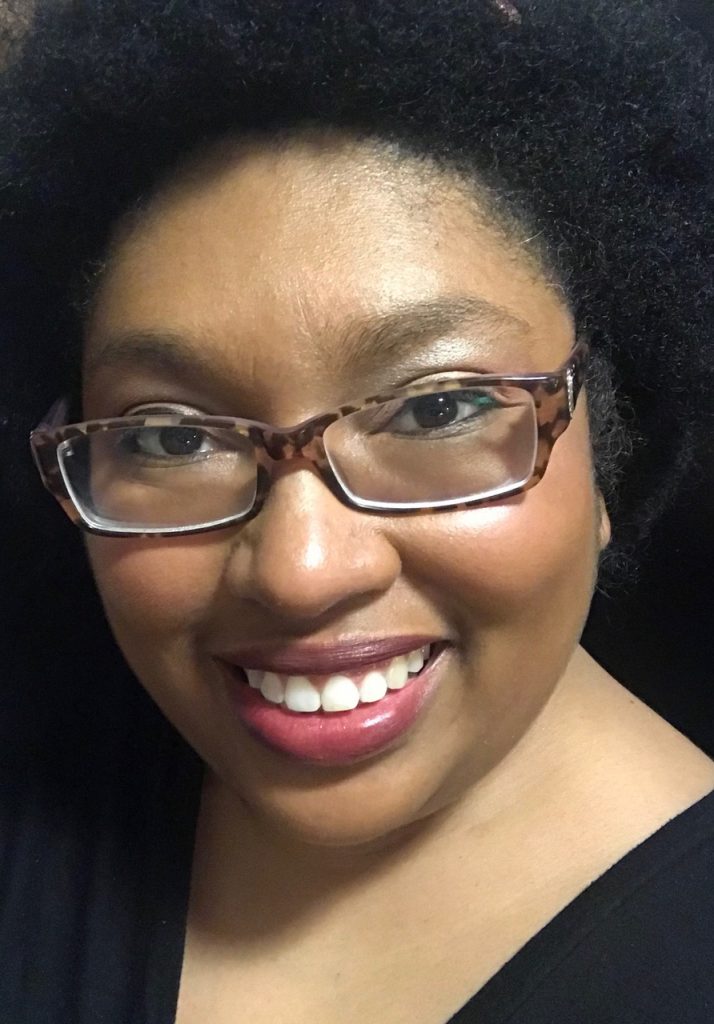
Icess Fernandez Rojas is a writer and educator who lives in Houston. She is a graduate of Goddard College’s MFA program. Her work has been published in Rabble Lit, Minerva Rising Literary Journal, NBCNews.com, HuffPost and the Guardian and the Feminine Collective‘s anthology Notes from Humanity. She is a recipient of the Owl of Minerva Award, a VONA/Voices of Our Nation Arts Foundation alum, and a Kimbilio Fellow. Follow her on Twitter: @Icess and at her website: http://icessfernandez.com.
![[PANK]](https://pankmagazine.com/wp-content/themes/pank/assets/images/pank-logo-large.png)

